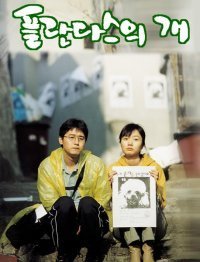In response to a comment from DKNY, I thought I’d do a post on how Korean names work.
In Korea, almost everyone has a three-syllable name. The first syllable is the family or clan name — Kim, Lee, Park, etc. — and the following two syllables are the personal name. So, for example, Roh is the family name of the Korean president, and Moo-hyun is his personal name; with the foreign minister, the family name is Ban, the personal name Ki-moon. They should be addressed as Mr. Roh and Mr. Ban, never as Mr. Moo-hyun or Mr. Moon, although Koreans have a tendency to make this mistake in reverse with foreigners, which meant that I was “Mistah Joshi” throughout my time in Korea. In China and Japan as well, the family name comes first, followed by the personal name.
Interestingly, this pattern of largest-to-smallest is followed throughout the Korean language. Dates are stated year-month-day-hour-minute, locations are given with the largest area first — country-prefecture-city, for example.
Occasionally Korean personal names have one syllable rather than two. This was more common historically, but seems to be out of fashion these days. Nevertheless, the Korean Mission currently has two deputy permanent representatives, Joon Oh and Cho Hyun.
With me so far? Good, because now it gets confusing, in three ways.
Word order: Unlike Koreans, Americans and Europeans put their family names last. Many Koreans who live in the West or deal frequently with Westerners have adopted our pattern. Thus, if you meet a Korean-American born here, she’s probably going to introduce herself as Susan Kim, not as Kim Susan. This is straightforward when the person in question has a Western personal name, but when the whole name is still in Korean, it gets difficult. DKNY cited what is probably the most famous of such reversed names, Reverend Sun Myung Moon. His family name is Moon, and in Korean, using the official government translitaration system, his name is Mun Seon-myeong. Which leads us to our second area of confusion …
Spelling: The South Korean government has adopted an official transliteration system that nobody likes, which replaces an older transliteration system that was full of diacritics. Koreans who want Americans to pronounce their names right have thus gotten creative. For example, though the most common spelling of the Korean family name 박 is Park, the transliteration system would render it Bak, and in my two years at the Mission, I’ve also seen a Mr. Pak and a Mr. Bahk; these folks all had the same name in Korean. Probably the most famous crazily spelled Korean name is Syngman Rhee, the first president of the Republic of Korea, whose name in official transliteration would be Yi/Li/Lee Seung-man. Which leads us to our third area of confusion …
Sinicization: It is deeply upsetting to most people when I tell them that there are, in fact, no Koreans named Lee. The name that is rendered Lee in English is in fact simply I, though that pronunciation is usually rendered Yi. The mysterious L is there because that’s how the name — and its associated character — is pronounced in Chinese. This is also true of all Koreans named Lim, who are really named Im. Even weirder is that the Korean name Roh is pronounced Noh, so the current president of the Republic of Korea is, in the official transliteration system, No Mu-hyeon. (How Syngman Rhee came up with his spelling remains a mystery.)
Short note on stray E’s in the transliterations: eo is pronounced like aw in awesome, eu like u in put, ae like a in save.
So now you know why he’s Minister Ban, not Minister Ki-moon.






 Minister Kang Kyung-hwa (강경화 공사님) of the Republic of Korea has been
Minister Kang Kyung-hwa (강경화 공사님) of the Republic of Korea has been 